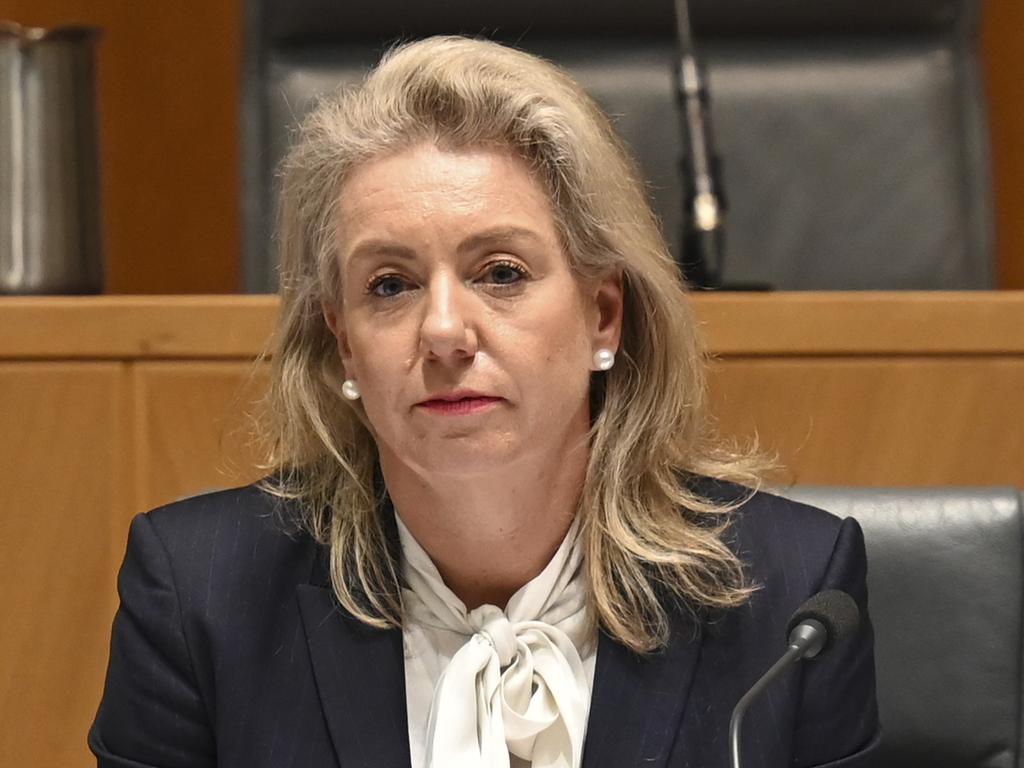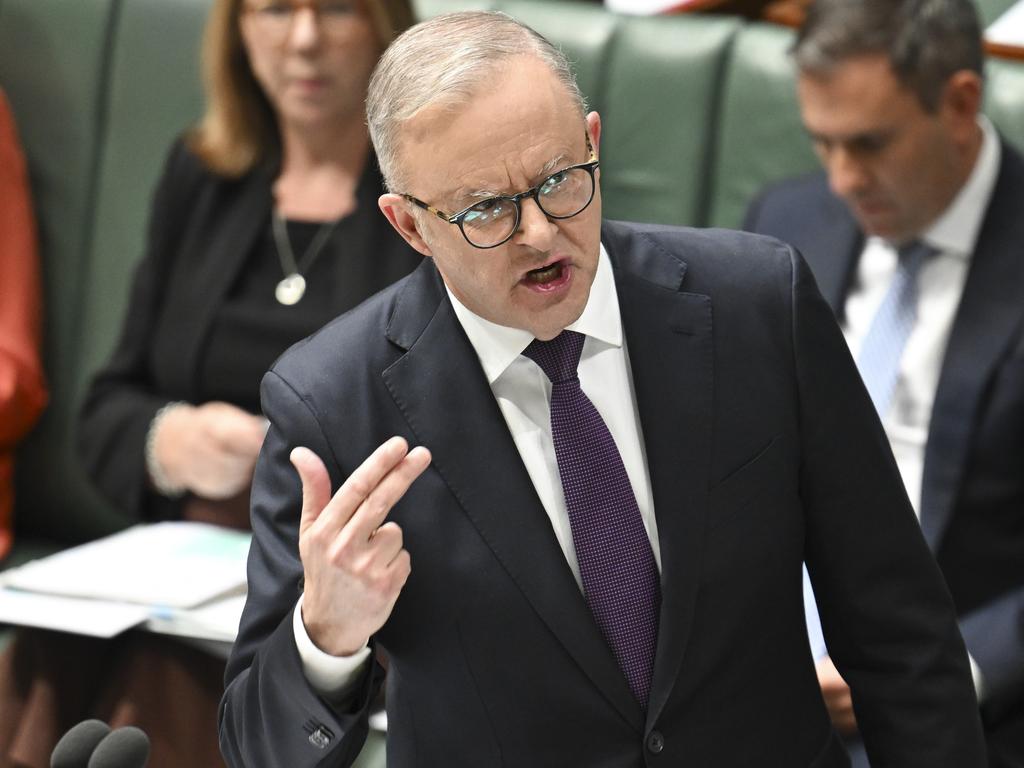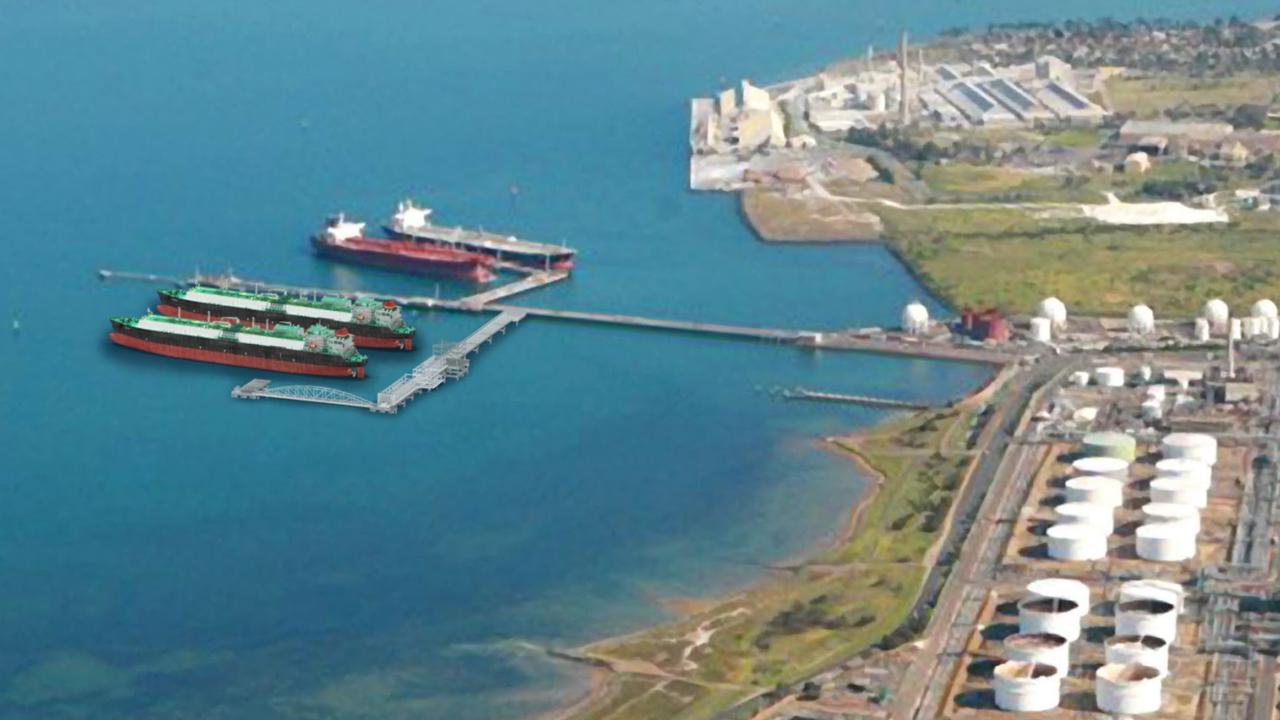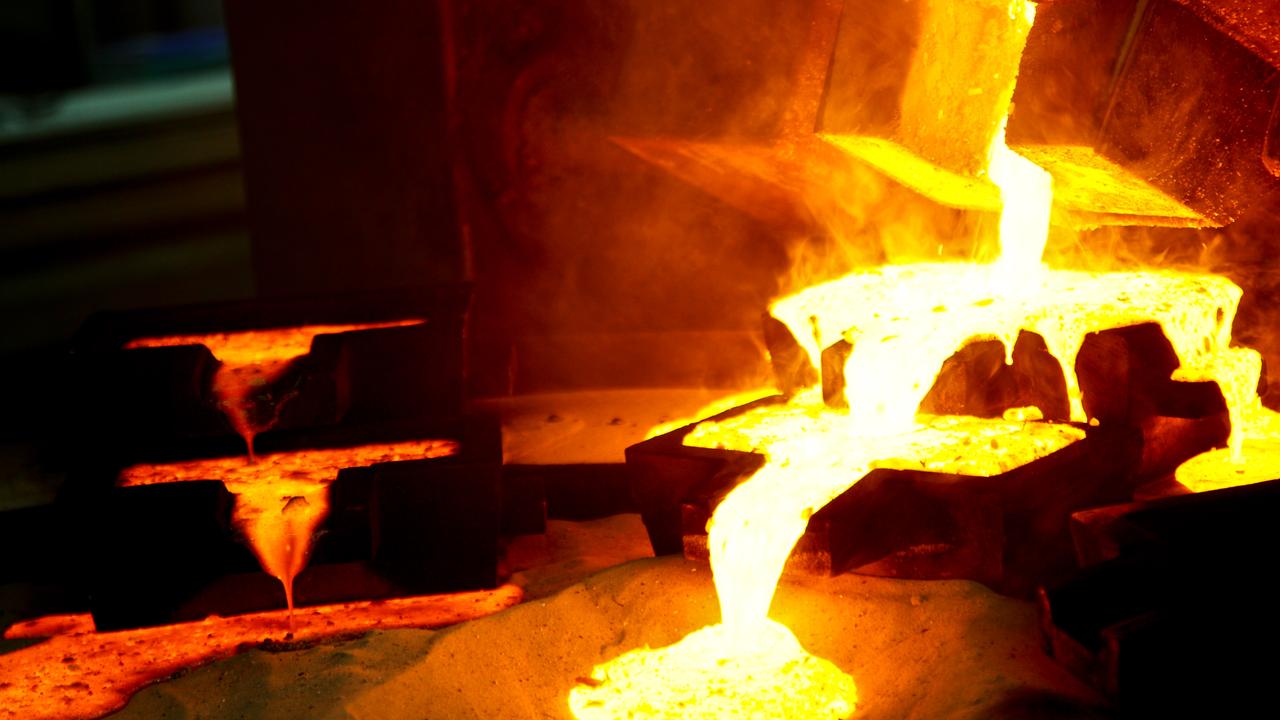Qantas upgrades for pollies should end, say former airline execs
Former Qantas chief Geoff Dixon has added his voice to the growing disquiet over politicians accepting free flight upgrades and says it may be time the practice ended.
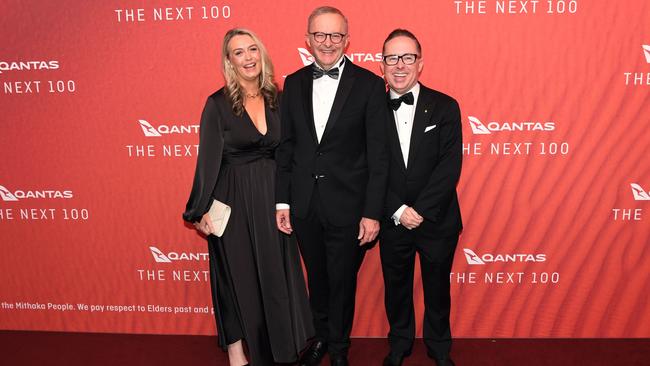
Business
Don't miss out on the headlines from Business. Followed categories will be added to My News.
Politicians should stop taking perks from airlines, with senior industry figures calling for an end to the upgrades rort roiling Labor and the Coalition.
That’s the view of multiple former airline chief executives and senior staff members in the wake of the freebies scandal that has engulfed Anthony Albanese and former Qantas CEO Alan Joyce.
With the Greens demanding a blanket ban on MPs requesting or accepting free flight upgrades for personal and work-related travel, former Qantas chief executive Geoff Dixon said “it might be time” for politicians to stop accepting them for personal flights.
“Upgrades in the airline industry have been around since the Wright brothers and are practised by all airlines in Australia and those who fly here. But if our federal representatives are going to waste their time and our time arguing about ‘who got this and who got that’, it might be time for them to stop taking them in the first place,” Mr Dixon said.
“Australia has many more pressing problems than this.”
Qantas’s first government relations adviser, David Hawes, who started in the role in 1994 and retired in 2009, said there was a clear business interest for the airline to give politicians their best possible flying experience.
What was unclear was how business class holidays for politicians benefit the constituents they represented.
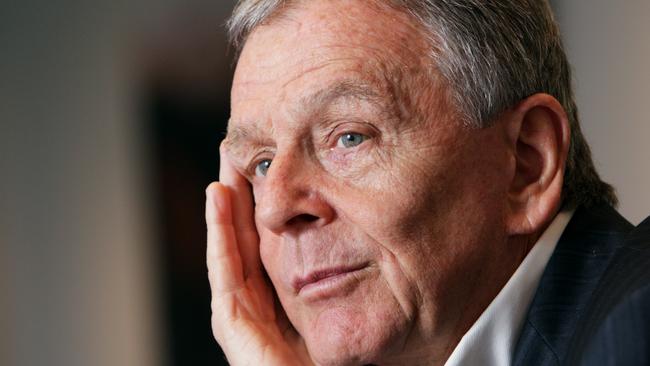
“There is potential to be compromised unless handled carefully,” Mr Hawes said. “Granting upgrades has long been part of the commercial offering by airlines.”
Several senior former executives also pointed out that requests to discuss policy or regulatory issues important to the airline were often met with glazed eyes unless the politicians had had a positive personal experience flying Qantas.
“If you’re dealing on a regular basis with politicians about issues of concern to the environment in which the airline operates, they’re just as likely to turn around to you before you even finish your question and say, ‘I had a flight two weeks ago and my bags didn’t turn up,’ or ‘your plane was 30 minutes late for takeoff’,” one said. “So it comes through the filter of their most recent personal experience as to whether they fully digest what you were there to discuss.”
Another said: “If you don’t get it right, you get punished by your customer.”
Joe Aston’s book about Qantas, The Chairman’s Lounge, had “given rise to debate” about flight upgrades “and the circumstances in which they are awarded,” Mr Hawes said.
“Some have even questioned whether it passes the pub test.”
Another prominent airline executive said the freebies equated to big dollars.
“The equivalent to the price of a car,” points out another former airline CEO, who declined to be named but added: “It’s not as if Woolworths gives them free food.”
All airline executives are adamant this is – and always has been – common practice among politicians.
But critics say key government decisions that affected Qantas – such as the Prime Minister blocking the proposed increase of flights by top-tier rival Qatar – cannot be considered impartial in light of the upgrade scandal.
In the 1990s and 2000s, Qantas’s relationship with politicians was so close the airline even had a ticketing office within Parliament House that catered to all their whims.
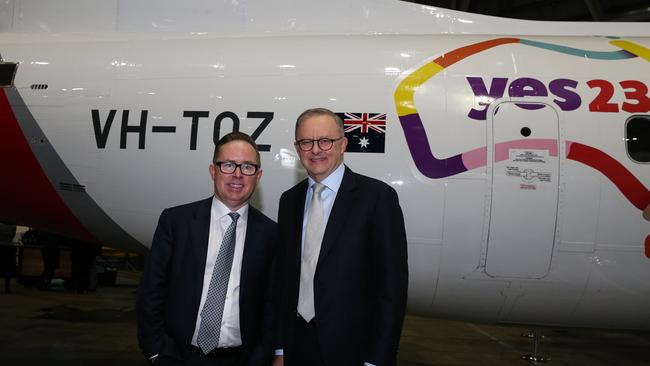
Tickets, taking action on approved upgrades and free of charge (FOC) flights, and generally “looking after” politicians’ travel needs were the jobs assigned to the three or four women who worked in the middle of nation’s seat of power in Canberra.
That set-up made sense 30 years ago, given the airline had only just transitioned from being government-owned to a publicly traded company.
While the ticketing office is long gone, revelations in Aston’s book show the ties between Canberra and Qantas have never been tighter. Mr Albanese allegedly received at least 22 free flight upgrades over his career, including as minister for transport, under the reign of Mr Joyce.
To be sure, there are many issues the airline needs to discuss with politicians, ranging from rules and regulations that cover safety and maintenance, taxation and also depreciation, in itself a big-ticket item for a $120m-plus aircraft. Others include the Qantas Sale Act, and the international competitive environment.
“There are many strings to the relationship between airlines and the government from policy and regulatory aspects that affect the operating and competitive environment, to the fact that government-funded travel represents a significant slice of revenue,” Mr Hawes said.
When Mr Hawes retired from Qantas, he was replaced by David Epstein, who held the role between 2008 and 2010, during the period when Aston reports that Mr Albanese, as transport minister, received upgrades.
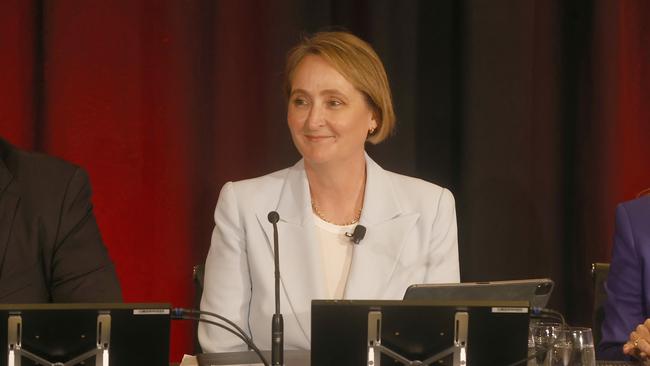
Mr Epstein became Mr Albanese’s principal private secretary in March this year.
The whole question about which politicians were upgraded by Qantas and who specifically reached out in the first place is an interesting one, but creates too much plausible deniability.
The only clear way of stopping politicians from being compromised by the airline is by banning the practice of accepting personal upgrades or freebies for themselves or their families at all.
In the UK, the new prime minister Keir Starmer’s popularity suffered a post-election slump last month in part due to a scandal involving freebies accepted by the Starmer family and others within his Labour government of small-ticket items, such as clothing and Taylor Swift tickets.
“Wardrobe-Gate”, as it was dubbed by the British press, amounted to roughly the price of one Qantas first class ticket to London. As a result of the scandal, Sir Keir said he would not accept any more free clothing.
Qantas historically has had a number of staff able to facilitate free upgrades to politicians who let their travel plans be known; from the state managers, to the government affairs chief, the executive committee and chair.
Originally published as Qantas upgrades for pollies should end, say former airline execs


